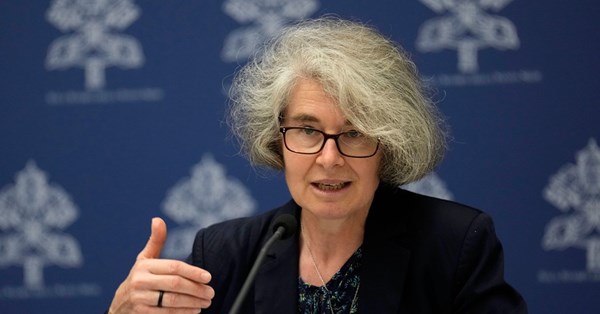INEVITABLY, the conclave-related torrent of radio continued, varying in quality but sometimes excellent, especially when presenters were genuinely interested. William Crawley certainly enjoyed himself compèring Sunday (Radio 4) with an “extraordinary” rooftop view over St Peter’s Square.
While I doubt that there will be significant Roman Catholic moves towards women’s ordination for a generation, Crawley’s interview with the Under-Secretary of the Synod of Bishops, the French nun Sister Nathalie Becquart, left me feeling that the emergence of women in leading back-office Vatican posts will ultimately have a substantial impact, but one that will take time to emerge.
The Canadian-Czech Cardinal Michael Czerny was also impressive in his capacity to get own points across while swerving most of the questions that Crawley actually asked. We should get Cardinal Czerny to do media training for the House of Bishops.
The speculation about papabili had become repetitive long before the conclave started. I have, however, greatly enjoyed some of the colour features, such as Crawley’s interview with the celebrated Roman tailors Gammarelli. Lorenzo, the family firm’s current head, reported Benedict XVI, a man who clearly enjoyed both being pope and its external trappings, quipping that “Life without Gammarelli would be impossible.” For my part, I would be content if clergy stipends rose to allow me to use a more commonplace clerical tailor.
The weakest part of Sunday’s Roman holiday was the occasional burst of vox pops. Vox pops, of course, tell the story that the editors want to tell. They formed the backbone of Colm Flynn’s report from Rome for Heart and Soul (World Service, Friday).
He showcased a genuinely broad range of voices, but tended to steer all of them towards their views on the ordination of women and married priests. He didn’t explore why the young Lithuanian pilgrim to Rome wanted the Church to explain what happens when we die, or why the Nigerian government official rejected any secular explanation for the growth of the Church in her country. A decidedly liberal young German spoke of rising numbers of youth in his homeland practising Catholicism, especially in its more traditional forms, linking it directly with uneasiness about the future.
It struck me that the next Archbishop of Canterbury will have to battle the media’s studied lack of interest in the actual core content of the Christian faith to reach the young people, in this country and across the Western world, looking for deeper meaning than materialism and political tribalism.
I am sometimes startled most of all by what is not discussed in these broadcasts. Most notably, I haven’t encountered any serious discussion about the collapse of Latin American Catholicism to the benefit of Pentecostalism — surely the most dramatic shift in the Christian world over the past half-century and the biggest crisis in global Roman Catholicism.
















